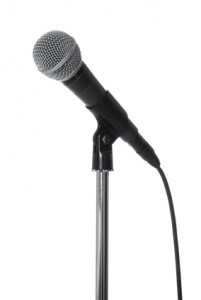Many executives remain uncertain how to handle themselves in a media interview. Here are 80:20’s top 10 tips for successful media encounters.
 1. Have an objective for the interview. Know what change you are trying to bring about through your comments. Keep this goal in mind throughout the discussion.
1. Have an objective for the interview. Know what change you are trying to bring about through your comments. Keep this goal in mind throughout the discussion.
2. Prepare clear messages in advance. To help the reporter, the audience and yourself, distil what you want to say into a few simple points (no more than three, if possible). Ensure you get these messages across in the interview.
3. Find out about the reporter. Not only is it courteous to know a little about the person you are meeting, but some background research may also help you anticipate the journalist’s concerns and line of questioning.
4. Ask yourself: “Why does this matter to anyone else?” Remember that, to care about your position, third parties need to understand what is in it for them. Clearly explain the implications of your remarks for others; if there aren’t any, you may be making the wrong points.
5. Avoid jargon. Never assume that the journalist knows your industry’s buzzwords and abbreviations. Use everyday language to ensure you are understood, and use examples and anecdotes to illustrate your points.
6. Be positive. To convince the reporter of your arguments, you need to demonstrate energy and conviction. Express yourself positively, and never speak negatively of other parties, including competitors.
7. Don’t fill an uncomfortable silence. Occasionally, a journalist may try to get you to say more than you intend, simply by remaining silent when you finish an answer. Do not feel pressured to fill a silence if you have already made your point.
8. Never say, “No comment”, as this statement is likely to be reported and makes you appear unhelpful, evasive and deserving of suspicion.
9. If you don’t know an answer, say so. It is far better to admit your lack of knowledge on a point than to guess incorrectly, as you may subsequently regret your answer. If the matter is important, offer to check the facts and provide these to the reporter later.
10. Never say anything you would regret seeing in print. Whether during the actual interview or in informal chat beforehand or afterwards, never say anything to a journalist that could embarrass you if reported.







